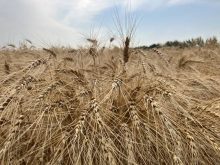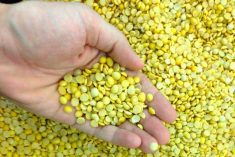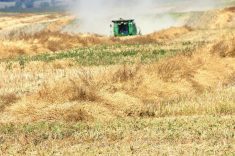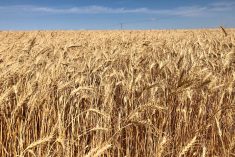The Canadian Agri-Food Trade Alliance (CAFTA) is expressing frustration over the pace at which Canada is engaging the United Kingdom toward a post-Brexit free trade deal.
Steve Verheul, assistant deputy minister of trade policy and negotiations at Global Affairs Canada, told a parliamentary committee any deal between the two countries will be impacted by European Union-U.K. negotiations, which are unlikely to be completed this year.
“Any future relationship between Canada and the U.K. would be influenced by the terms of the agreement between the UK and the EU, as well as any unilateral U.K. approaches for after the transition period,” he said during a July 9 meeting of the Commons standing committee on international trade.
Read Also

U.S. grains: Chicago corn, soy prices recover on updated biofuel guidance
Chicago | Reuters – Chicago grain and soybean futures regained ground on Tuesday as a selloff in commodity markets subsided…
The U.K. left the EU on Jan. 31 and is in the middle of an 11-month implementation period. A trade deal between the two does not appear to be on the immediate horizon, however, as recent negotiations have been difficult.
Verheul reassured members of Parliament during his testimony that trade officials from Canada are in contact with their British counterparts to prepare for the post-transition trade relationship.
“Whatever the outcome of Brexit, the U.K. will remain a significant market for Canadian companies,” he said, noting the U.K. is Canada’s most important commercial partner in Europe.
But Canadian officials are challenged by a number of unknowns. The U.K. is prioritizing its negotiation with the EU, and once completed, is expected to enter into bilateral negotiations with a number of other countries, notably its larger trading partners.
There’s also the possibility the 11-month transition phase ends without the U.K. signing a trade deal with the EU.
“We are working closely now with U.K. officials to start to talk about how we can come up with a traditional relationship that would govern our bilateral trade going forward,” Verheul said. “We’re trying to position ourselves to make sure we have an agreement in place, an understanding in place, to deal with that possible event.
“There are various uncertainties here that we are having to monitor.”
If negotiations do begin between Canada and the U.K., Verheul told the committee the goal would be to replicate the Canada-European Union trade pact, or Comprehensive Economic and Trade Agreement (CETA), as much as possible, while making it more tailored to the unique relationship between the two countries.
“We would look to, and the U.K. would as well, to translate into a bilateral agreement” said Verheul, adding a “large portion of that work has already been done.”
Discussions between the two nations stretch back to when Brexit was first becoming a reality, following the U.K.-wide referendum on ending EU membership in 2016, and Verheul noted a deal was almost struck early last year.
Claire Citeau, executive director of CAFTA, said CETA held promise for exporters when first signed but “continues to fall short” of its potential, because of the EU’s reluctance to remove technical and non-tariff trade barriers to trade over the deal’s three years of existence.
“Our view is that Canada should formally engage and seek to conclude negotiations of an ambitious (Canada-U.K.) free trade agreement that removes tariffs and non-tariff barriers, that provides liberal rules of origins, and secures the level playing fields,” she said, noting some other countries have done this and Canada needs “to be at the table as well.”
She expressed frustration over the pace at which Canada has been negotiating.
“Certainly, there’s been some anxiety that our members feel, not only on non-tariff barriers but also the pace of negotiations that some of our competitors have adopted when it comes to negotiating free trade agreements around the world… that has been the case with the U.K., but other countries as well,” she said.
“We know that we lose when our competitors are first to markets that we’re also after, so seeing the U.S., Australia, the EU engage with the U.K., it certainly raises eyebrows and questions.”
Andy Barr, head of trade and economics at the British High Commission in Canada, told Glacier FarmMedia in late January that he’d like to see the two nations “lock in the benefits of CETA and then boost the relationship from there.”
Doubts remain over how much any new trade deal between the U.K. and Canada will positively impact farmers.
Despite the EU being the world’s largest importer of agriculture and agri-food products, Canada’s market share has been minimal since CETA came into force in 2017.
— D.C. Fraser reports for Glacier FarmMedia from Ottawa.
















